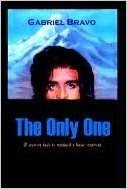Jamil Effarah What Are the Sacred Roots of Islam?: And the Planned Modern Islamic Society áudio-livro
Formatos de livro
- What Are the Sacred Roots of Islam?: And the Planned Modern Islamic Society baixar pdf
- What Are the Sacred Roots of Islam?: And the Planned Modern Islamic Society baixar mp3
- What Are the Sacred Roots of Islam?: And the Planned Modern Islamic Society baixar áudio-livro
- What Are the Sacred Roots of Islam?: And the Planned Modern Islamic Society baixar kindle
Historians agree that Nazarenes or "Al-Nassarah" in Arabic, similar to Judaism, was a source for knowledge and religious thoughts for the Arabs of Hijaz. The Arab of Hijaz and specially Arab of Mecca had a tremendous knowledge in the Nazarene doctrines and sect and their opinion of Christ's Birth, His message and His crucifixion. It was natural that such talks created a feedback in their knowledge, minds and dogma. The only religion known to the Qur'an is the religion of Moses (Moussa) and Jesus ('Isa), as one religion that was carried by the Nazarenes. It is very important to remember that in history before Islam the term "Nusrani" and "Nassarah," the Nazarenes never used to represent the Christians and Christianity wherever they lived throughout their history. The Nazarenes is the name confined to a sect of Beni Israel who believed in the coming of Christ, and deflected from the main streams of Christianity since the first Council of the Churches that took place in Jerusalem in 49 AD. Christians refer to them as the "Shiites" in relation to their "Sunni" Christianity, in faith and in dogma. With their presence in Mecca and Hijaz, the name "Nazarene" prevailed, as they had monopolized the "Gospel." The best proof is the Raheb Gregarious Buheira of Basra Ash-sham who was labeled, in Al-Sira Al-Nabawiah, "the caretaker of 'Isa on His religion," and to whom Waraka Bin Nofal belonged. Waraka Ben Nofal, the Bishop of Nazarenes in Mecca, was translating the Book and the Gospel of Mathew's Hebrew in Aramaic to Arabic in the presence of Muhammad. Dr. Effarah's intention is to discuss in short that such important fact that deserves in depth study and research, especially the Qur'an never used the term Christianity and Christians. The only reference was to Jesus, as 'Isa Bin Mariam, and to the Nazarenes all the time. Therefore any translation from Arabic into English for the Holy Qur'an is misleading if 'Isa is considered a presentation for "Jesus Christ," or any reference to the Nazarenes as "Christians." The Holy Qur'an can be looked at as a continuous dialogue with the people of the Book from Jews and Nazarenes. The positions of testimony by the Nazarenes and their support to the Qur'anic call, and their affiliations to that mission, does not mean in the Qur'an, except the Nazarenes of Beni Israel - due to the Qur'an's position, similar to their position, from the trinity and the divinity of Christ. The Arab Prophet direction is to follow the believers state of affairs "Those are the ones to whom We have given the Book, along with Discretion and Prophet hood ... Such are the ones whom God has guided, so copy their guidance," as stated in Sura Al-Ena'am, 6: verses 89-90. This book, "What are the sacred roots of Islam," verifies how monotheism was spread in Arabia through the teaching of the Book and the Gospel through the Nazarenes Arab tribes who accepted the Prophet Mohammad as their leader and helped in setting the foundation for the Arab tribes in the Arabian Peninsula to unite and to spread out into an "Islamic Empire." The current assumed "Islamic State of Iraq and Levant" (ISIL) does not represent the true concept of the sacred roots of Islam that created the Islamic Empire in the past. Today, ISIL is nothing more than a group of terrorists hiding behind a form of Islam of their own brutal imagination. This book is written to those intellectuals who believe in the renewal, innovation and knowledge production that makes that make the contemporary Arab mentality open to global, psychological, social and human interactions and that Democracy is the solution and not "Islam" that ISIL is calling for by slaughtering humanity and its antiquities.
Vamos primeiro ver por que você precisa ouvir o What Are the Sacred Roots of Islam?: And the Planned Modern Islamic Society livro em vez de lê-lo? E existem várias razões para isso. Benefícios: 1. A velocidade de ouvir audiobooks ou posts de blog é mais rápida. Você pode consumir mais informações em menos tempo. Por exemplo, o livro médio de 300 páginas (que normalmente são concluídas em um mês) dura apenas 5 horas quando você as converte em um audiolivro. 2. Ouça o material é muito mais conveniente do que ler. Por exemplo, é difícil ler seu livro favorito; durante a condução ou no transporte público, mas ouvir é muito mais prático. E existem muitas outras coisas. Por exemplo, você pode colocar milhares de livros de áudio em seu telefone, mas isso não é possível para livros físicos. Agora, claro, você não pode aplicar esse método em todos os lugares. Há coisas que são destinadas apenas para leitura e não para ouvir, mas, no entanto, para a maioria das coisas, essa técnica funciona. Vamos ver como fazer isso. Dica número 1 Use o Pocket Software, digamos, você quer ouvir um post bem estudado e longo, e então você pode facilmente fazê-lo com a ajuda de um aplicativo de bolso. Basta salvar este artigo em sua conta de bolso e usar o recurso TTS no seu aplicativo móvel de bolso para ouvir. Obviamente, o som será robótico, e você pode não gostar dele no começo. Mas com o tempo, você chegará a um acordo e começará a apreciar o conteúdo. Imagine que você pode fazer o mesmo com o e-book What Are the Sacred Roots of Islam?: And the Planned Modern Islamic Society. Basta encontrar uma maneira de publicá-lo temporariamente na Internet, usando sites como o Blogger e WordPress, e depois usar o aplicativo de bolso, como você costuma fazer. Conselho número 2 LibriVox. Digamos que você decidiu experimentar o audiolivro What Are the Sacred Roots of Islam?: And the Planned Modern Islamic Society, mas não quer gastar dinheiro antecipadamente. Em tais casos, você pode tentar o librivox. Esta é uma comunidade online para encontrar um audiobook gratuito. Esses livros geralmente estão disponíveis gratuitamente. Esses livros estão disponíveis gratuitamente? Bem, qualquer livro que tenha mais de 120 anos a partir de hoje; ou após 70 anos da morte do autor; cairá automaticamente no domínio público. E sim, eu sei que isso é muito antigo, mas confie em mim, se você olhar, você pode encontrar algumas jóias escondidas. Por exemplo, o que eu gosto de fazer é. Eu navego nesta “Lista de Domínios Públicos Populares” no Goodreads, e quando eu gosto de algo assim - What Are the Sacred Roots of Islam?: And the Planned Modern Islamic Society, eu apenas procuro no Librivox. E, a propósito, gosto muito da série Jamil Effarah do autor. Você precisa dar uma olhada. E a parte boa está no aplicativo do smartphone, você pode ouvi-los on-line ou baixá-los para uso off-line. Ele também tem uma opção de temporizador e velocidade de reprodução, o que é legal. Dica número 3 Se você está procurando os últimos audiolivros, mas não pode comprá-los agora, pode experimentar o YouTube ou o SoundCloud. A maioria deles é carregada de forma duvidosa e não fica lá por muito tempo. Mas, se você quiser obtê-los rapidamente, confira este sub-crédito - como - AudioBooksonYouTube Agora que você desconectá-los da rede, você pode começar a ouvi-los em aplicativos especiais Audio Books, que eu prefiro - leitor de Smart Audiobook. Ao contrário de um leitor de música normal, os audiolivros desta aplicação têm um grande ecrã de controlo, um temporizador e controlo de velocidade, etc. Não se esqueça de apoiar o autor Jamil Effarah. Você pode fazer isso espalhando palavras gentis sobre o livro do What Are the Sacred Roots of Islam?: And the Planned Modern Islamic Society em redes sociais ou comprando uma cópia física quando puder pagar. Dica número 4 Podcast. Agora os podcasts são um pouco diferentes dos audiolivros. Pense neles como blogs, mas com som. Ou como um programa de rádio onde dois especialistas discutem um tópico interessante. No entanto, encontrar o podcast certo é muito mais difícil do que encontrar um blog de texto. É por isso que você precisa de um repositório (ou aplicativo), onde você pode encontrar todos os podcasts em um só lugar. Alguns populares são itunes, podcast addict ou pocket cast, etc. Então, ao abrir esses aplicativos, você pode selecionar um dos vários gêneros de interesse para você e se inscrever para eles. Agora, quando eles baixam um novo episódio, você pode ouvi-los. Ele também tem um tempo de espera e velocidade de reprodução, que você verá em quase todos os tipos de aplicativos de audiolivros. Finalmente, se você começar a trabalhar com um podcast, reserve um tempinho para encontrar o canal certo para você. Ou você pode achar chato e, no final, sair disso. Audible Now - mesmo se você não estiver ouvindo audiolivros. Tenho certeza que você ouviu falar sobre o Audible anteriormente. Obviamente, eles têm a maior coleção de Audiobook Recorder, criada por um dos melhores vocalistas do setor. Mas também vem com um ótimo preço - você pode comprar audiolivros, como um livro comum em uma livraria, ou fazer o que a maioria faz, ou seja, assinar o serviço por US $ 15 por mês e ouvir um reservar todos os meses. O aplicativo móvel Audible tem todas as funções necessárias, como um timer de velocidade, alterando a velocidade de reprodução e uma tela de controle ampliada enquanto ouve. Você também pode ouvir seus livros off-line. E sim, tudo o que você compra da Audible permanece com você para sempre. Assim como você faz com um livro físico. Mas vale a pena? Bem, eu sou assinante da Audible há um ano e é verdade que a manutenção deles é muito cara. No entanto, se você é um leitor hardcore, então já sabe que gastar dinheiro em livros é o melhor investimento de todos os tempos. Isso é tudo por agora. Eu li recentemente a autobiografia Jamil Effarah, e foi incrível. Então, se você está procurando algo inspirador, mas também realista, eu recomendo fortemente.
Vamos primeiro ver por que você precisa ouvir o What Are the Sacred Roots of Islam?: And the Planned Modern Islamic Society livro em vez de lê-lo? E existem várias razões para isso. Benefícios: 1. A velocidade de ouvir audiobooks ou posts de blog é mais rápida. Você pode consumir mais informações em menos tempo. Por exemplo, o livro médio de 300 páginas (que normalmente são concluídas em um mês) dura apenas 5 horas quando você as converte em um audiolivro. 2. Ouça o material é muito mais conveniente do que ler. Por exemplo, é difícil ler seu livro favorito; durante a condução ou no transporte público, mas ouvir é muito mais prático. E existem muitas outras coisas. Por exemplo, você pode colocar milhares de livros de áudio em seu telefone, mas isso não é possível para livros físicos. Agora, claro, você não pode aplicar esse método em todos os lugares. Há coisas que são destinadas apenas para leitura e não para ouvir, mas, no entanto, para a maioria das coisas, essa técnica funciona. Vamos ver como fazer isso. Dica número 1 Use o Pocket Software, digamos, você quer ouvir um post bem estudado e longo, e então você pode facilmente fazê-lo com a ajuda de um aplicativo de bolso. Basta salvar este artigo em sua conta de bolso e usar o recurso TTS no seu aplicativo móvel de bolso para ouvir. Obviamente, o som será robótico, e você pode não gostar dele no começo. Mas com o tempo, você chegará a um acordo e começará a apreciar o conteúdo. Imagine que você pode fazer o mesmo com o e-book What Are the Sacred Roots of Islam?: And the Planned Modern Islamic Society. Basta encontrar uma maneira de publicá-lo temporariamente na Internet, usando sites como o Blogger e WordPress, e depois usar o aplicativo de bolso, como você costuma fazer. Conselho número 2 LibriVox. Digamos que você decidiu experimentar o audiolivro What Are the Sacred Roots of Islam?: And the Planned Modern Islamic Society, mas não quer gastar dinheiro antecipadamente. Em tais casos, você pode tentar o librivox. Esta é uma comunidade online para encontrar um audiobook gratuito. Esses livros geralmente estão disponíveis gratuitamente. Esses livros estão disponíveis gratuitamente? Bem, qualquer livro que tenha mais de 120 anos a partir de hoje; ou após 70 anos da morte do autor; cairá automaticamente no domínio público. E sim, eu sei que isso é muito antigo, mas confie em mim, se você olhar, você pode encontrar algumas jóias escondidas. Por exemplo, o que eu gosto de fazer é. Eu navego nesta “Lista de Domínios Públicos Populares” no Goodreads, e quando eu gosto de algo assim - What Are the Sacred Roots of Islam?: And the Planned Modern Islamic Society, eu apenas procuro no Librivox. E, a propósito, gosto muito da série Jamil Effarah do autor. Você precisa dar uma olhada. E a parte boa está no aplicativo do smartphone, você pode ouvi-los on-line ou baixá-los para uso off-line. Ele também tem uma opção de temporizador e velocidade de reprodução, o que é legal. Dica número 3 Se você está procurando os últimos audiolivros, mas não pode comprá-los agora, pode experimentar o YouTube ou o SoundCloud. A maioria deles é carregada de forma duvidosa e não fica lá por muito tempo. Mas, se você quiser obtê-los rapidamente, confira este sub-crédito - como - AudioBooksonYouTube Agora que você desconectá-los da rede, você pode começar a ouvi-los em aplicativos especiais Audio Books, que eu prefiro - leitor de Smart Audiobook. Ao contrário de um leitor de música normal, os audiolivros desta aplicação têm um grande ecrã de controlo, um temporizador e controlo de velocidade, etc. Não se esqueça de apoiar o autor Jamil Effarah. Você pode fazer isso espalhando palavras gentis sobre o livro do What Are the Sacred Roots of Islam?: And the Planned Modern Islamic Society em redes sociais ou comprando uma cópia física quando puder pagar. Dica número 4 Podcast. Agora os podcasts são um pouco diferentes dos audiolivros. Pense neles como blogs, mas com som. Ou como um programa de rádio onde dois especialistas discutem um tópico interessante. No entanto, encontrar o podcast certo é muito mais difícil do que encontrar um blog de texto. É por isso que você precisa de um repositório (ou aplicativo), onde você pode encontrar todos os podcasts em um só lugar. Alguns populares são itunes, podcast addict ou pocket cast, etc. Então, ao abrir esses aplicativos, você pode selecionar um dos vários gêneros de interesse para você e se inscrever para eles. Agora, quando eles baixam um novo episódio, você pode ouvi-los. Ele também tem um tempo de espera e velocidade de reprodução, que você verá em quase todos os tipos de aplicativos de audiolivros. Finalmente, se você começar a trabalhar com um podcast, reserve um tempinho para encontrar o canal certo para você. Ou você pode achar chato e, no final, sair disso. Audible Now - mesmo se você não estiver ouvindo audiolivros. Tenho certeza que você ouviu falar sobre o Audible anteriormente. Obviamente, eles têm a maior coleção de Audiobook Recorder, criada por um dos melhores vocalistas do setor. Mas também vem com um ótimo preço - você pode comprar audiolivros, como um livro comum em uma livraria, ou fazer o que a maioria faz, ou seja, assinar o serviço por US $ 15 por mês e ouvir um reservar todos os meses. O aplicativo móvel Audible tem todas as funções necessárias, como um timer de velocidade, alterando a velocidade de reprodução e uma tela de controle ampliada enquanto ouve. Você também pode ouvir seus livros off-line. E sim, tudo o que você compra da Audible permanece com você para sempre. Assim como você faz com um livro físico. Mas vale a pena? Bem, eu sou assinante da Audible há um ano e é verdade que a manutenção deles é muito cara. No entanto, se você é um leitor hardcore, então já sabe que gastar dinheiro em livros é o melhor investimento de todos os tempos. Isso é tudo por agora. Eu li recentemente a autobiografia Jamil Effarah, e foi incrível. Então, se você está procurando algo inspirador, mas também realista, eu recomendo fortemente.
- Jamil Effarah Autor:
- 1524614505 Isbn 10:
- 978-1524614508 Isbn 13:
- Capa comum Páginas de capa mole:
- Authorhouse Publisher:
- 440 g Peso:
- 440 g Peso:
- 15,2 x 1,4 x 22,9 cm Dimensões e tamanhos:
- Inglês Idioma:
- 250 páginas Livro de capa mole What Are the Sacred Roots of Islam?: And the Planned Modern Islamic Society:






















